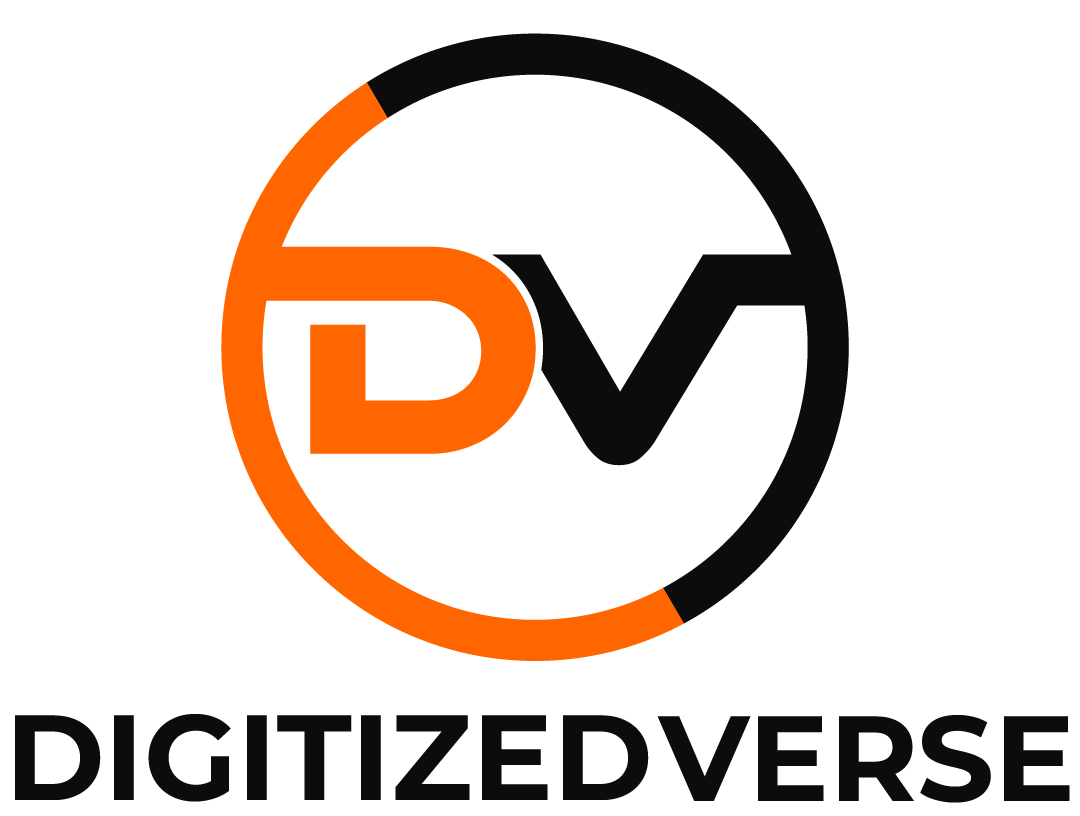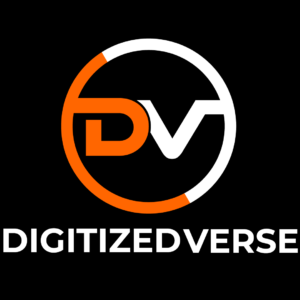Digital Marketing Hub
Looking to stay ahead in the fast-paced world of digital marketing?
Stay ahead of the curve with our expert insights and cutting-edge tools. We offer top-tier digital marketing services and resources to help you achieve your online goals.
Are you tired of pouring money into marketing campaigns that don't deliver?
EXPLORE LATEST DIGITAL MARKETING TOOLS AND STRATEGIES
In the fast-paced world of digital marketing, staying ahead of the curve is essential. Businesses are constantly looking for new ways to reach their audience, and digital marketing offers a plethora of tools and strategies to do just that. From SEO optimization to content marketing, the landscape is vast and continually evolving. In this article, we will delve into the most effective digital marketing insights and services that can help your business thrive online.
Understanding Digital Marketing
Digital marketing refers to the use of digital channels, platforms, and technologies to promote products or services to consumers. This includes search engines, social media, email, and websites. Unlike traditional marketing methods, digital marketing offers more precise targeting and analytics, enabling businesses to understand their audience better and optimize their marketing efforts.
The Importance of SEO
Search Engine Optimization (SEO) is the process of enhancing a website to rank higher on search engine results pages (SERPs). Effective SEO increases visibility, drives organic traffic, and boosts credibility. Key elements of SEO include keyword research, on-page optimization, content creation, and link building.
Keyword Research
Keyword research is the foundation of any successful SEO strategy. It involves identifying the terms and phrases that potential customers use when searching for products or services related to your business. Tools like Google Keyword Planner, Ahrefs, and SEMrush can help you discover high-volume, low-competition keywords that can improve your website’s ranking.
On-Page Optimization
On-page optimization refers to the adjustments made directly on your website to improve its visibility and relevance. This includes optimizing title tags, meta descriptions, header tags, and ensuring that content is well-structured and includes relevant keywords. Additionally, improving site speed, mobile-friendliness, and user experience are critical components of on-page SEO.
Content Creation
Content is king in the realm of digital marketing. High-quality, relevant, and engaging content can attract and retain visitors, encouraging them to take desired actions. Blog posts, articles, videos, infographics, and podcasts are all forms of content that can be leveraged to enhance your SEO efforts and provide value to your audience.
Link Building
Link building involves acquiring hyperlinks from other websites to your own. These backlinks are essential for SEO as they signal to search engines that your content is valuable and credible. Strategies for effective link building include guest blogging, broken link building, and outreach to industry influencers.
Leveraging Social Media Marketing
Social media marketing involves using platforms like Facebook, Instagram, Twitter, LinkedIn, and TikTok to promote your brand and engage with your audience. Each platform has its unique features and audience demographics, making it crucial to tailor your strategy accordingly.
Creating Engaging Content
To succeed in social media marketing, creating engaging and shareable content is vital. This includes high-quality images, videos, infographics, and interactive content like polls and quizzes. Content should be relevant to your audience and encourage interaction.
Utilizing Paid Advertising
Paid advertising on social media can amplify your reach and target specific demographics with precision. Platforms like Facebook Ads and Instagram Ads offer robust targeting options, allowing you to reach users based on their interests, behaviors, and demographics.
Building a Community
Building a community around your brand fosters loyalty and encourages word-of-mouth marketing. Engage with your audience through comments, messages, and user-generated content. Hosting live sessions, contests, and Q&A sessions can also boost engagement and create a sense of community.
Email Marketing Strategies
Email marketing remains one of the most effective digital marketing channels. It allows you to communicate directly with your audience and nurture leads through personalized content and offers.
Growing Your Email List
Building a robust email list is the first step in an effective email marketing strategy. Offer incentives like free ebooks, discounts, or exclusive content in exchange for email sign-ups. Ensure that your sign-up forms are easy to find and fill out.
Crafting Compelling Emails
Compelling email content can drive engagement and conversions. Use catchy subject lines, personalize your emails, and provide value through informative and relevant content. Incorporate call-to-actions (CTAs) to guide your readers towards desired actions, such as making a purchase or visiting your website.
Analyzing and Optimizing Campaigns
Regularly analyzing the performance of your email campaigns is crucial for continuous improvement. Track metrics like open rates, click-through rates, and conversion rates to understand what works and what doesn’t. Use this data to optimize future campaigns for better results.
The Role of Content Marketing
Content marketing focuses on creating and distributing valuable, relevant, and consistent content to attract and retain a clearly defined audience. The goal is to drive profitable customer actions through strategic content creation and distribution.
Developing a Content Strategy
A successful content marketing strategy starts with understanding your audience and their needs. Conduct audience research to identify pain points, interests, and preferences. Create a content calendar to plan and organize your content, ensuring consistency and relevance.
Types of Content
Diverse types of content can be used in content marketing, including blog posts, videos, infographics, podcasts, and ebooks. Each type serves a different purpose and engages audiences in unique ways. For example, blog posts can provide in-depth information, while videos can deliver quick and engaging content.
Measuring Content Success
Measuring the success of your content marketing efforts is essential to understand what resonates with your audience. Track metrics like page views, time on page, social shares, and conversion rates. Use tools like Google Analytics and social media analytics to gather insights and refine your strategy.
Pay-Per-Click (PPC) Advertising
Pay-Per-Click (PPC) advertising is a model where advertisers pay a fee each time their ad is clicked. It’s an effective way to drive traffic and conversions quickly. Google Ads is one of the most popular PPC platforms, allowing businesses to display ads on Google’s search engine and partner sites.
Keyword Selection for PPC
Choosing the right keywords is crucial for a successful PPC campaign. Use tools like Google Keyword Planner to find keywords that have high search volume and low competition. Focus on both short-tail and long-tail keywords to capture a broad and specific audience.
Crafting Effective Ad Copy
Ad copy plays a significant role in the success of your PPC campaigns. Write clear, compelling, and concise ads that highlight the benefits of your product or service. Include a strong call-to-action (CTA) to encourage clicks.
Monitoring and Optimization
Continuous monitoring and optimization are essential for PPC success. Track key metrics like click-through rates (CTR), cost per click (CPC), and conversion rates. Use this data to adjust your keywords, ad copy, and bidding strategy to improve performance.
Influencer Marketing
Influencer marketing involves partnering with influencers who have a large and engaged following. Influencers can help promote your brand and products to their audience, providing authentic endorsements and increasing your reach.
Identifying the Right Influencers
Choosing the right influencers is critical to the success of your influencer marketing campaign. Look for influencers who align with your brand values and have an audience that matches your target demographic. Tools like BuzzSumo and Influencity can help you find and evaluate potential influencers.
Building Relationships
Building strong relationships with influencers is essential for long-term success. Approach influencers with a personalized pitch and offer value in exchange for their collaboration. Maintain ongoing communication and provide clear guidelines to ensure a successful partnership.
Measuring Impact
Measuring the impact of influencer marketing campaigns involves tracking metrics like engagement rates, reach, and conversions. Use unique discount codes or affiliate links to track sales generated through influencer partnerships.
The Power of Analytics in Digital Marketing
Analytics play a crucial role in digital marketing by providing insights into the performance of your campaigns. Tools like Google Analytics, HubSpot, and Adobe Analytics can help you track key metrics and make data-driven decisions.
Setting Up Analytics
Properly setting up analytics involves defining your goals and tracking the right metrics. Set up conversion tracking to measure the success of your campaigns and use custom dashboards to monitor your key performance indicators (KPIs).
Interpreting Data
Interpreting data correctly is essential to gain actionable insights. Look for patterns and trends in your data to understand what works and what doesn’t. Use these insights to optimize your campaigns and improve your overall digital marketing strategy.
Continuous Improvement
Digital marketing is an ongoing process that requires continuous improvement. Regularly review your analytics data and make adjustments to your strategies based on your findings. Stay updated with the latest trends and technologies to keep your marketing efforts effective and relevant.
Conclusion
Digital marketing offers a wealth of opportunities to connect with your audience and drive business growth. By leveraging SEO, social media marketing, email marketing, content marketing, PPC, influencer marketing, and analytics, you can create a comprehensive and effective digital marketing strategy. Stay committed to continuous learning and improvement, and you’ll be well on your way to achieving your marketing goals. Embrace the ever-evolving digital landscape, and let your business thrive in the online world.



